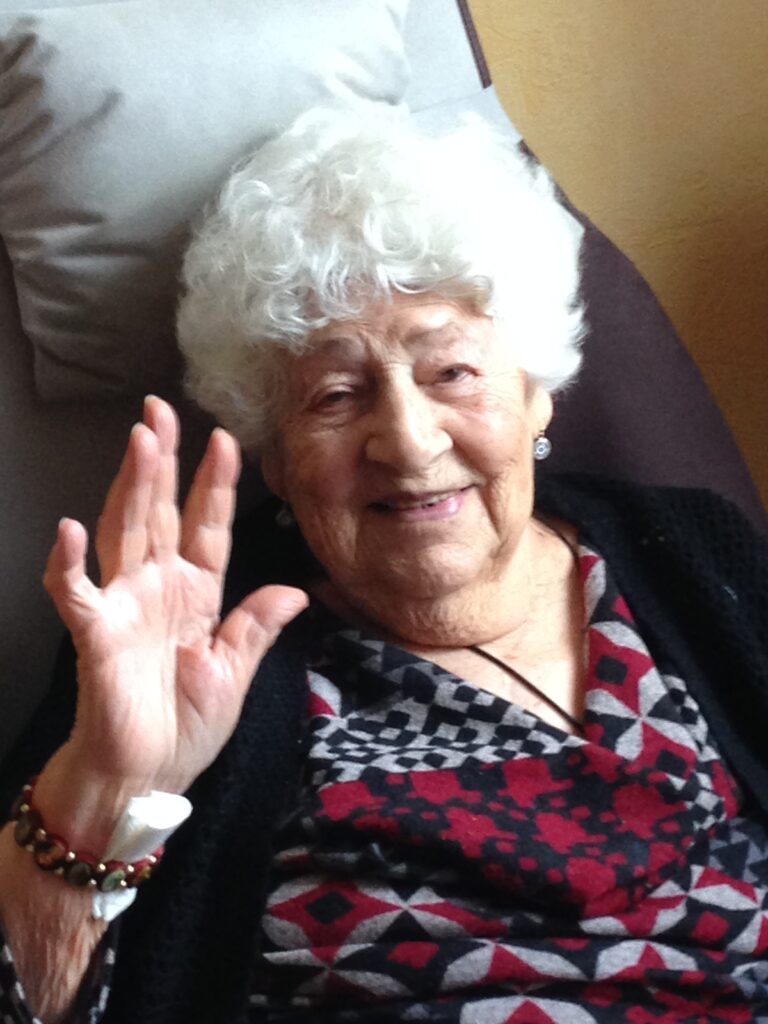When France was occupied by the Nazis during World War II, they set up their headquarters in various large—and often beautiful—French homes throughout the country. My belle-mère’s (mother-in-law’s) parents’ home in Rennes was chosen for such a purpose. At the time, my belle-mère was sixteen. She and her family were allowed to live in the basement while the Nazis took over their home.
At the same time, her extended family, who lived in Paris and feared that the city would be destroyed, came to Rennes, thinking they would be safer there. They moved in with my belle-mère’s family—forty-five of them in total, all living in the basement.
My belle-mère’s father was active in the French Resistance. Living beneath the Nazi officers gave them a hidden vantage point from which to observe what was going on above. The basement also provided an opportunity to eavesdrop on conversations. He was permitted to ride his bicycle into the countryside to collect fresh produce and dairy products, and often a note or two was slipped into the potato sack. Certainly, he feared for his life—and for the lives of his family. But as he later said, “To sit and do nothing was like death itself.”
My French family has many stories about living with the Nazi officers. Oddly, none of them are brutal or ugly. Instead, they are surreal. The head Nazi officer was a family man, and his wife—like my belle-mère’s mother—was pregnant. When my belle-mère’s mother went into labor, the head officer took her to the hospital and made sure she had everything she needed.
I often wonder what it must have been like to live that way—to be treated with a strange kind of respect, yet to know that a violent war raged all around them. To see the enemy as human. To see how their lives, so different, could still intertwine. It was as if the Nazi officers living in their home were not part of the war. A twisted paradox: to be involved, and yet not want to be.
As horrendous and evil as that war was, it seems that small acts of kindness sometimes slipped through the ugliness. Often at night, the Nazi officers played the piano, and the music seemed to soothe their frayed nerves. Still, my belle-mère’s family never once let down their guard. They knew that death was as close as the doorstep. The expression “killing with kindness” carried a raw, chilling meaning for them in times like that.
A family in my village—whose home was also occupied during WWII—once told me that the Nazi officers had taken over their great-grandmother’s home and used it as a base. That Christmas, the officers and the family celebrated together in what was still her home. At the end of the evening, one of the officers said, “We’ve had a wonderful Christmas celebrating with you. We’ve enjoyed our evening together. But if tonight we receive orders to kill you, we will.” He smiled and then went upstairs to bed.
Photo: A French food ration chart from WWII that I found years ago at the brocante. The chart lists available food items, their cost, and the allowed quantity per person. Fresh fruits, vegetables, milk, and meat are notably absent.
The WWII food ration chart is hand-printed on canvas and hangs in our kitchen.
Last night- August 22nd- our town in Provence celebrates the day it was liberated, as it does every year, with a parade honoring the American and British soldiers, the national anthems- of America- Britain and France- played by the town’s band, a bouquet laid at the war memorial of those who died defending France from our village, a moment of silence, and then a party with food, dancing, music in the streets.

On this day over twenty years ago, I met Annie. She came to my door and said, “I didn’t know an American to thank at the end of the war, and since I heard you are American, I came to say thank you to you.”


Leave a Reply